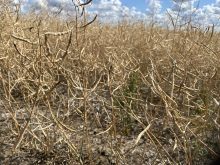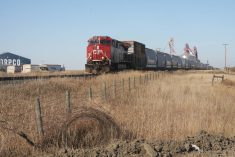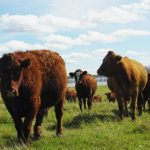PHILIP Brown, former president of the Prince Edward Island Federation of Agriculture, remembers clearly the day he knew his two decades of farming were coming to an end.
It was Feb. 27, 1995, and nothing better illustrates the impact of politics and political decisions on agriculture and rural Canada.
That day, the 38-year-old hog, grain and oilseed producer watched on television as Liberal finance minister Paul Martin announced more than $1 billion in agriculture program cuts to help fight the deficit – the end of the prairie Crow Benefit, the end to Maritime freight subsidies and deep cuts in Agriculture Canada spending on research and food inspection.
Read Also

Rural emergency room closures continue to be vexing problem
Staffing issues are at the root of disruptions and closures in hospital emergency departments, both in rural and urban Canadian locations.
“I decided that night that getting out of farming was just a matter of time,” Brown said in early September as the election campaign was starting. “I realized that with the cuts, the backstop I had as a farmer was gone. The dynamics of farming changed that night.”
Soon, he was out of hogs. Then, he gave up grain and oilseed production as well.
And soon, he was a Conservative politician, winning a provincial legislative seat and serving as a provincial cabinet minister.
In autumn 2008, Brown was campaign manager for the Conservative candidate trying to win P.E.I.’s Egmont riding for the party after two decades of Liberal representation.
“I really think politics and political decisions have a tremendous effect on my neighbours, on this area,” said the former farm leader.
It is an obvious point for rural Canada.
Political decisions on farm supports, infrastructure investment and political clout matter a great deal. The votes increasingly are in urban Canada so do the politicians understand that much of the wealth of cities, much of what sustains cities, comes from rural Canada?
In that context, the election campaign of 2008 can only be considered a missed opportunity for rural issues.
Going into the campaign, there were high rural hopes that parties would react to the Senate agriculture committee report and several House of Commons agriculture committee reports that called for creation of rural seat at the cabinet table.
There were some hopes that when the Federation of Canadian Municipalities issued a mid-campaign plea for a multi-billion dollar federal investment in rural infrastructure, parties might respond.
There was some admittedly faint hope that agricultural issues might have received a bit more attention.
Instead, the election campaign lacked political recognition that rural matters.
Several days before the vote, as this column is being written, it does not take a fortune teller to predict the Conservatives will win most rural seats and the Liberals and NDP will continue to be largely the parties of urban Canada.
Perhaps it is too predictable.
In the national leaders’ debate, there was precious little recognition by Conservative leader Stephen Harper that rural issues matter and none by the opposition.
Watching the debate with a group of Manitoba farmers, it was striking how many saw the leaders’ policies, particularly opposition leaders, as an attack on rural Canada and its higher energy use.
For rural Canada, it was perhaps an opportunity lost or more chillingly, perhaps a harbinger of rural political isolation.















